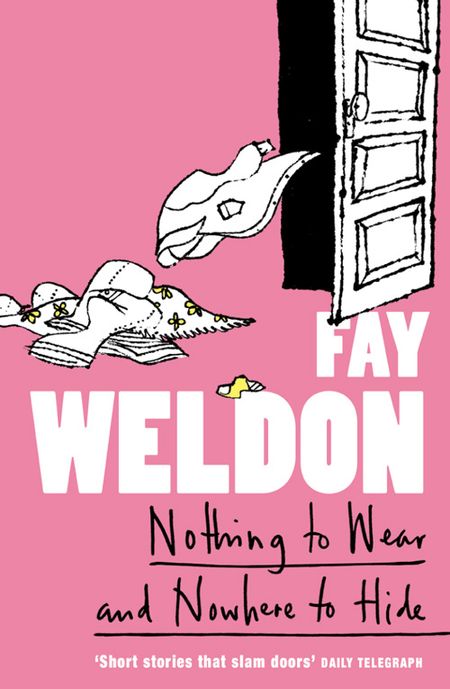Fay Weldon is a novelist, screenwriter and cultural journalist. Her novels include The Life and Loves of a She-Devil, Puffball, Big Women and Rhode Island Blues. She has also published her autobiography Auto da Fay. Her most recent novel was the critically acclaimed She May Not Leave.
She was born in England, raised in a family of women (her mother is a novelist) in New Zealand, and took degrees in economics and psychology at the University of St Andrews. She is married for the second time, and has four sons. Her novels and stories serve as despatches from that ever-changing marital front – the war between the sexes. She takes no sides, but has a clear vision of the wounds inflicted, as well as courage shown, and the exhilaration of occasional victory. The least didactic of contemporary chroniclers, she is one of the few authors whose every new novel or story is endlessly discussed and argued over.
‘I didn’t find writing, writing found me. I never set out to be a writer, I found myself writing. I never wrote diaries as a child, I hated writing letters. “Dear grandmother, I hope you are well.” Now what do I say, mum?’ “Thank you for the present.” ‘Now what?’ Mind you, mum was a writer of novels, as was my grandfather and my uncle. Everyone wrote fiction around me to pay the rent. It looked like hard and uncertain work to me. Mostly I was a reader. The entire adult world encouraged you to read and it was free, those being the days of public libraries. I read the entire contents of the children’s library in Christchurch New Zealand by the time I was eleven. I picked up speed fast. The librarians would test me on books I brought back within the hour, but they never broke my spirit or caught me out. I read while I walked to the school or the shops: I crossed roads without looking, I don’t know how I survived. I read at table, I read in bed, I couldn’t read while riding a bike though I tried.
‘My father was a doctor: he wrote a serial in the local newspaper, it was a detective story, it went on episode after weekly episode for more than a year. The editor begged him to stop, he said he couldn’t, he had no idea who dunnit. So they offered a prize to any person who could solve the crime and, lo and behold, such a person existed. The serial concluded, my father could attend to his proper business of healing the sick, a merciful fictional silence fell. There will always be a reader to know better than a writer. All that was during the war, my mother would send her manuscripts by ship to the publishers in London, the ships would sink, they never got there. There will always be practical problems a writer must face, and lessons to be learned. Always keep a carbon in case the ship sinks. In the end I ran out of books to read and finally when I got to my thirties, started to write the books I wanted to read because no one else seemed to be writing them.
‘I did write two stories as a child. One was when I was ten, a description of a parting at a railway station. I can see it in my mind’s eye today. My own tall childish handwriting, carefully looped f’s and h’s and g’s. (I was taught copperplate.) I can remember my own amazement at how it was possible to create people and feelings and atmosphere using only words. And I wrote a story when I was fifteen and had just been transported to England and was trying to get into a new school. No one had ever asked me to write a story before. I wrote one about a boy in Pompei with his world falling about him just as the real world in the form of the volcano put an end to his troubles, and he was glad. Very miserable. But then so was I at the time. And that astonished me: how you could transpose yourself in time and space and body. It all seemed a bit too powerful to dabble with. I got into the school (South Hampstead for Girls) and in my first week they asked me to write a recipe for breadmaking. I did so: it seemed to me perfectly simple, and the teacher read it out to the class as an example of how to write such things properly, clearly and without fuss. It was the first and best review I ever got.’















4thestatebooks